Panamanian Coffee the characteristics of Rosa Coffee in the Story of the Historical Jade Manor in the four major producing areas of Panama
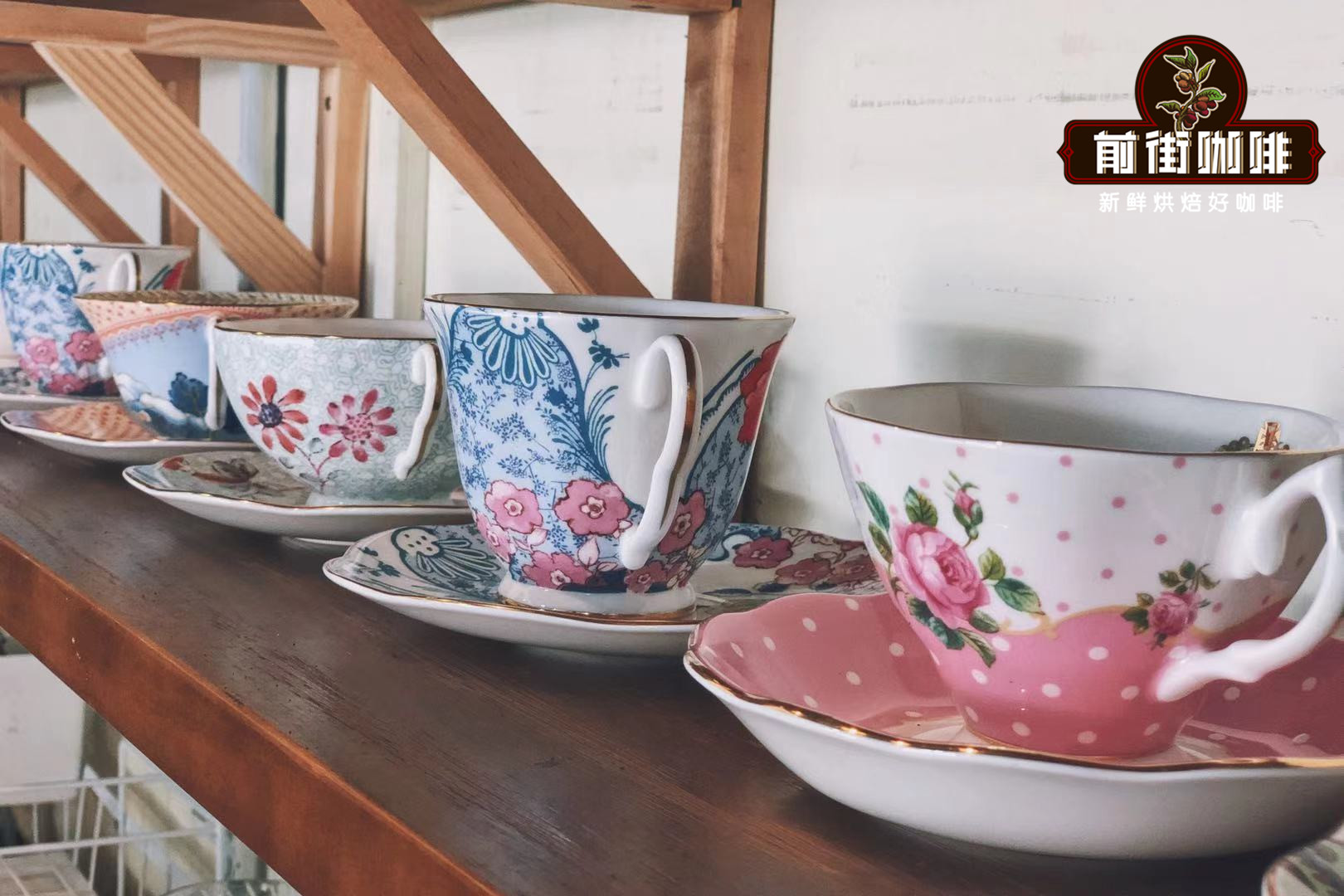
Professional coffee knowledge exchange more coffee bean information please follow the coffee workshop (Wechat official account cafe_style)
Panama's rosy summer coffee beans are famous, and the whole country is filled with a strong rosy summer atmosphere, among which the rose summer coffee beans produced by Jade Manor are the most famous. Panamanian rose summer coffee beans have a strict grading system, often heard of blue standard rose summer coffee, red standard rose summer coffee and so on. Today, Qianjie Coffee will introduce Panamanian Coffee, the leader of high-quality boutique coffee.
Panamanian coffee
Panama is located in Central America, followed by North and South America, bordering Costa Rica and Colombia. The coffee road in Panama can be said to have come all the way with a golden spoon.
As we all know, the Panama Canal was built by the United States and was independently controlled by the United States for some time after it was built. It was the construction of the Panama Canal that caused many American elites to go south at the end of the 20th century, on the one hand, to demand jobs, and on the other to tap business opportunities. Many of Panama's famous coffee farms are created by these elites, such as the owner of Emerald Manor used to be a banker and the owner of Hartman Manor used to be an engineer. These elites adhere to the principles of standardization and refinement in the management of coffee estates, whether it is the planting of coffee trees to distribute the elevation of the land to form the grade of coffee beans, or the artificial picking, the refinement of the treatment process, and so on. are important factors that make Panamanian coffee famous in the world.
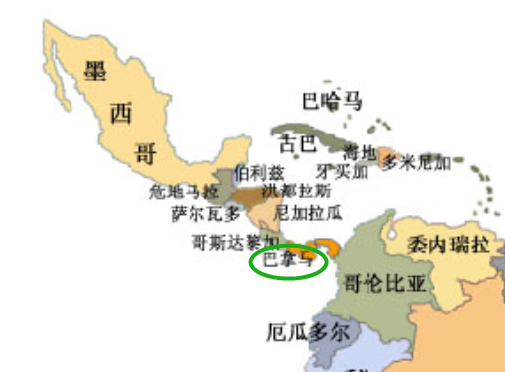
Panamanian coffee producing area
There are four main coffee producing areas in Panama: Poquet, Walken, Santa Clara and Kendra. Pokuit coffee producing area, with an average elevation of 1450 meters, produces the most coffee and the best quality coffee in Panama. Walken coffee producing area, the average elevation is 2000 meters, the coffee characteristics of this area is more moderate and balanced. Santa Clara coffee producing area, with an average elevation of 1500 meters, is close to the Panama Canal, making it very convenient to transport coffee. Kendra coffee producing area, with an average elevation of 1200 meters, has attracted more and more attention in recent years, and the industry believes that it has the potential to develop high-quality stunt coffee.
Jade Manor Rose Summer Coffee beans
The Emerald Manor, located in the Pokuit coffee region, was bought in 1964 by Rudolph Peterson, a retired American banker, primarily in the dairy industry. Later, his son Price, who was a doctor, quit his job to help his father run the farm, introduced Kaddura and Kaduai coffee beans in 1987, set up a washing plant in 1994, bought Jalameyou Manor in 1996 and merged it into the Emerald Manor.
Rose summer coffee beans come from Jhala Miyou Manor, which was not known to be a rose summer variety at first, just because the coffee beans in a certain part of the estate are very good, not typical Panamanian coffee beans. Then the Petersons decided to plant the coffee beans in this plot independently after continuous cup testing. Since BOP won the championship in the Panamanian raw bean competition in 2004, the excellent results have been paid attention to. After being identified by experts, it was found that the coffee bean is a rose summer variety of Ethiopia. Since then, the Peterson family has focused most of its efforts on developing infrastructure to support excellent batch separation and fine processing.
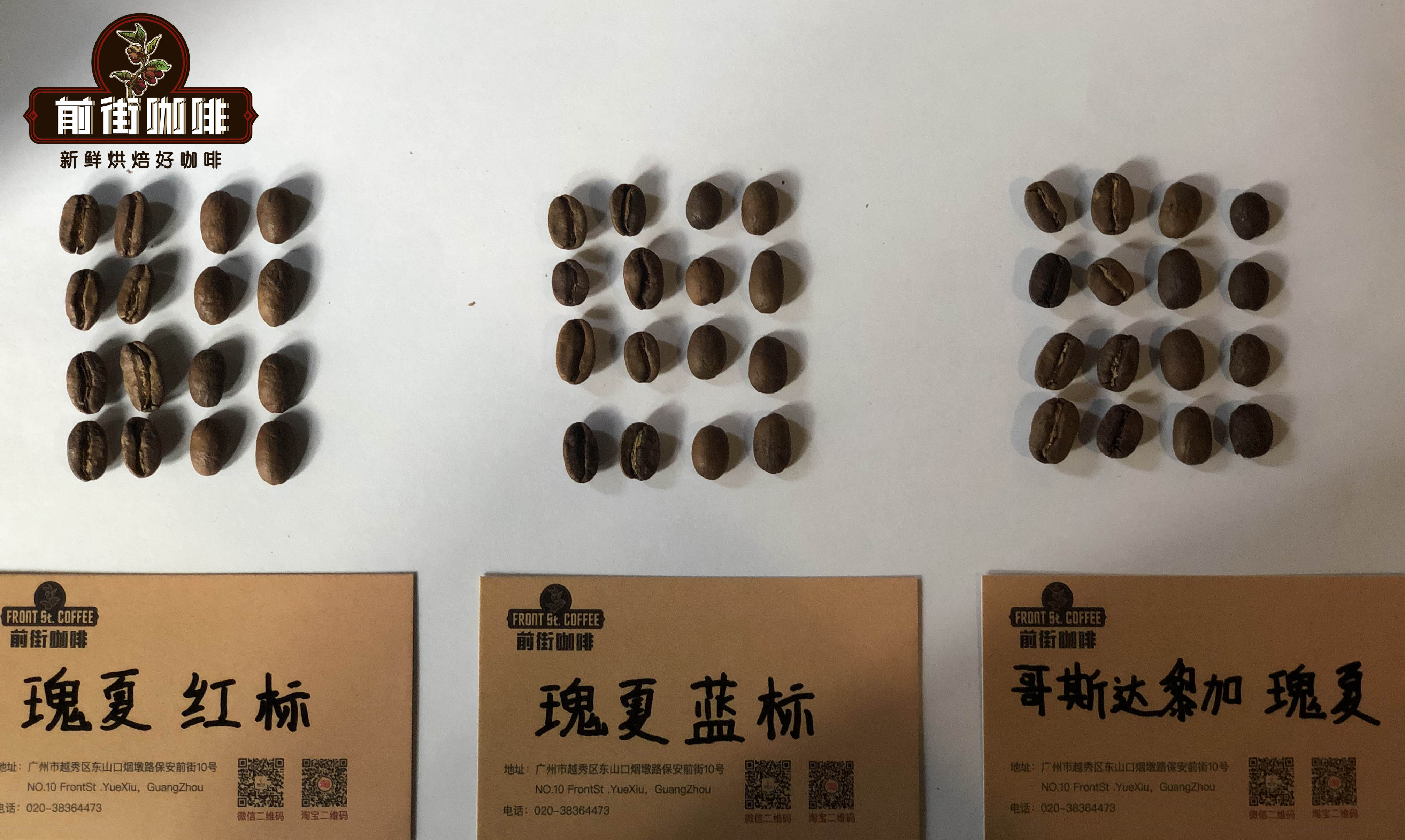
Division of coffee plots in jadeite manor
The excellent Rose Summer Coffee in Jade Manor is closely related to its grading system. The Emerald Manor is divided into three plots according to altitude: Jaramillo, Caas Verdes and El Velo. Each plot will be fine again to a small plot, and the elevation of the plot will be marked to ensure the traceability of the source of Rosa coffee beans.
High-quality Rose Summer is mainly produced in two plots: Jalamiyou and Canaus Vidvis. The annual rainfall of Jalamiyou is 4000ml, the average temperature in daytime is 19-25 ℃, the average temperature at night is 11-15 ℃, and the average altitude is 1600-1700m. The annual rainfall of Canaus Vedvis is 3500ml, the average temperature in daytime is 16-23 ℃, the average temperature at night is 10-15 ℃, and the average altitude is 1600-1800m.
El Velo is the latest acquisition of the Jade Manor, with an average elevation of 1700-1900m. In addition to planting Rosa and Kaduai, the site also has a small number of other exotic species, such as Laurina, Pakamara, Mocha and SL28.
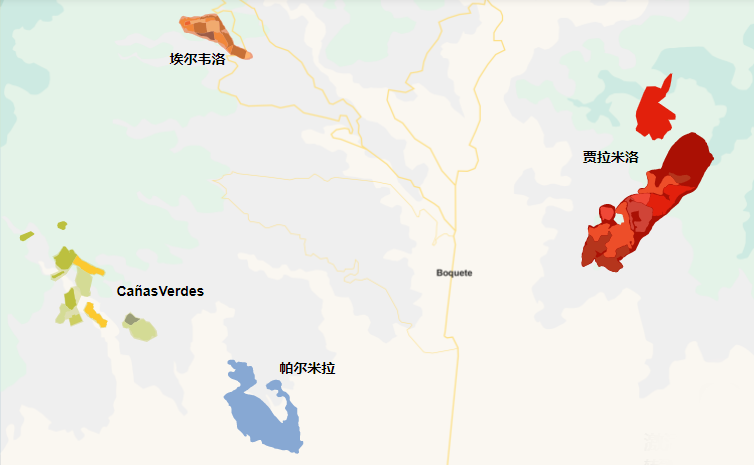
Classification of coffee beans in jadeite manor
According to the cup test performance and the varieties and plots planted, the Jadeite Manor is divided into five brands. There are three brands of rose summer varieties: jadeite special selection (Esmeralda Special), private collection (Private Collection) and rose summer 1500 (Geisha1500). According to the grade, from high to low is jadeite special selection, private collection, rose summer 1500. Kaduai has two brands: Diamond Hill (Diamond Mountain grows) and Pamela (Palmyra).
[red label Rose Summer Coffee]
The rosy summer specially selected by jadeite is the red sign we often hear. The rose beans, which are planted at an altitude of 1600-1800 meters above sea level and with a cup test score of more than 90 points, are produced in the two producing areas of Jalamiyou and Canaus Vedvis.
The independent bidding held by the Jade Manor itself, in the divided plots, the Rose Summer batch that was put forward for bidding is the red bid. However, there are also non-competitive red bids on the market, that is, the rose summer which is selected from the same plot and then circulated to the market, the varieties and quality are the same, but there are differences in the price.
This grade of rose summer is treated in the sun or water, with special, bright floral and citrus aromas.
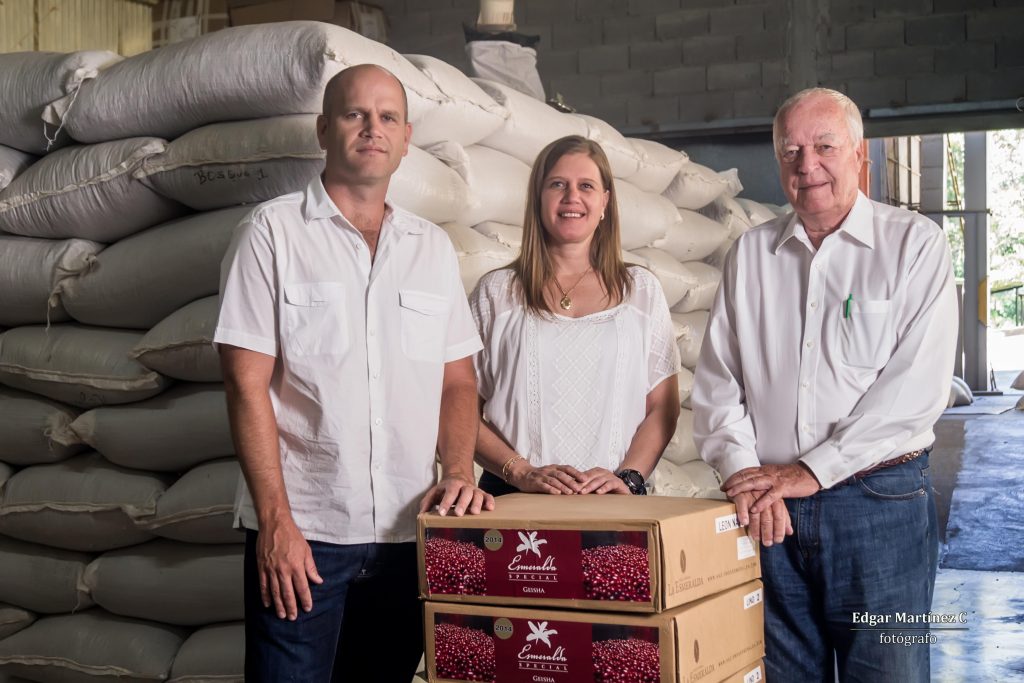
Qianjie Coffee Jade Manor Red Standard Rose Summer
Producing area: Pokuit, Panama
Manor: Emerald Manor Canaus Vedvis
Altitude: 1600-1800 m
Variety: Rose summer
Treatment: insolation
[green label Rose Summer Coffee]
The private collection is the green standard rose summer, not the batch of independent competition, planting the rose summer varieties that do not participate in the bidding but still have excellent quality. Select micro-batch mixed beans from different plots, such as Jalamiyou and Canaus Vedvis, which are planted at 1600-1800 meters above sea level.
Due to the use of mixed bean mode, there is no detailed indication on the plot, so sometimes the flavor similarity between green mark and red mark is very high, but the next production may be different.
Although the green standard is not as high as the red standard, it still has the classic flavor of Rose Summer, floral, fruity, sour citrus, thick and juicy taste. The green sign of rose summer is also washed or tanned.
Qianjie Coffee Jade Manor Green label Rose Summer
Producing area: Pokuit, Panama
Manor: Jade Manor
Altitude: 1600-1800 m
Variety: Rose summer
Treatment: wash or in the sun
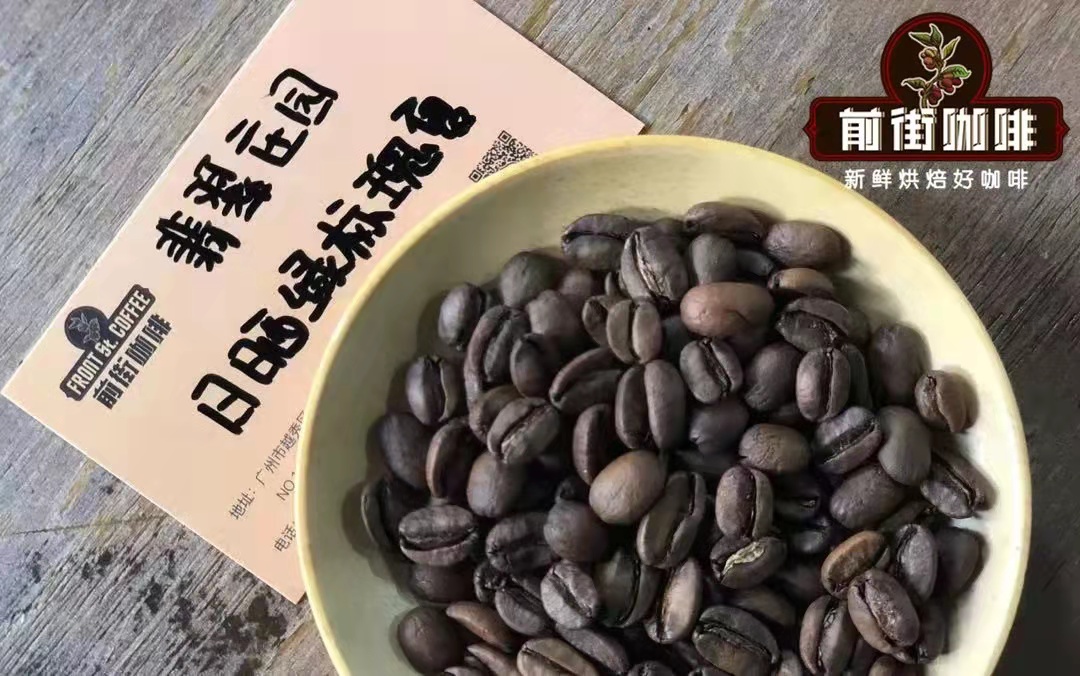
[blue label Rose Summer Coffee]
Rose summer 1500 is the blue standard rose summer. Select mixed beans from three different plots, namely, Jaramillo, Canaus Vedvis and Elvelo, which are 1400-1500 meters above sea level. Flavor micro-flower fragrance, fruit sour, sweet, taste is not thick, the original blue standard rose summer only washing treatment. In 2020, the Emerald Manor also launched a sun-treated blue standard rose summer coffee.
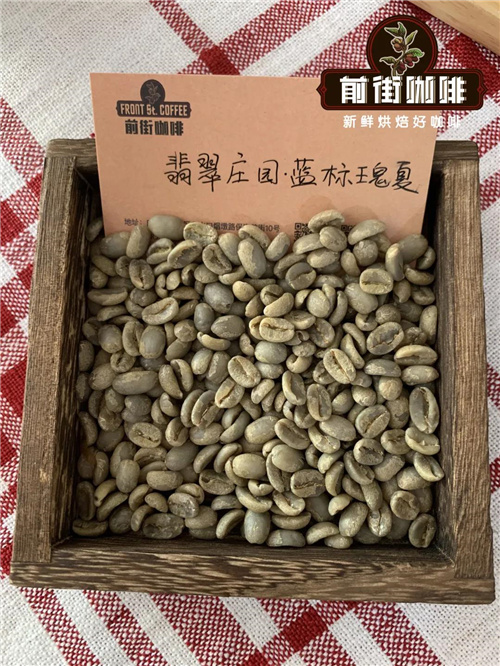
To sum up, the most obvious differences among red standard rose summer coffee, green standard rose summer coffee and blue standard rose summer coffee are the difference of planting altitude and whether to adopt the mode of mixed beans. to put it simply, the one with high altitude (1600-1800 meters) and clear information of planting plot is red-marked rose coffee, and the mixed beans at the same altitude as red-marked rose summer coffee is green-marked rose coffee. finally, the lower altitude (1400-1500 meters) is the blue standard Rosa coffee.
Qianjie Coffee Jade Manor Blue label Rose Summer
Producing area: Pokuit, Panama
Manor: Jade Manor
Altitude: 1500 m
Variety: Rose summer
Treatment: wash or in the sun
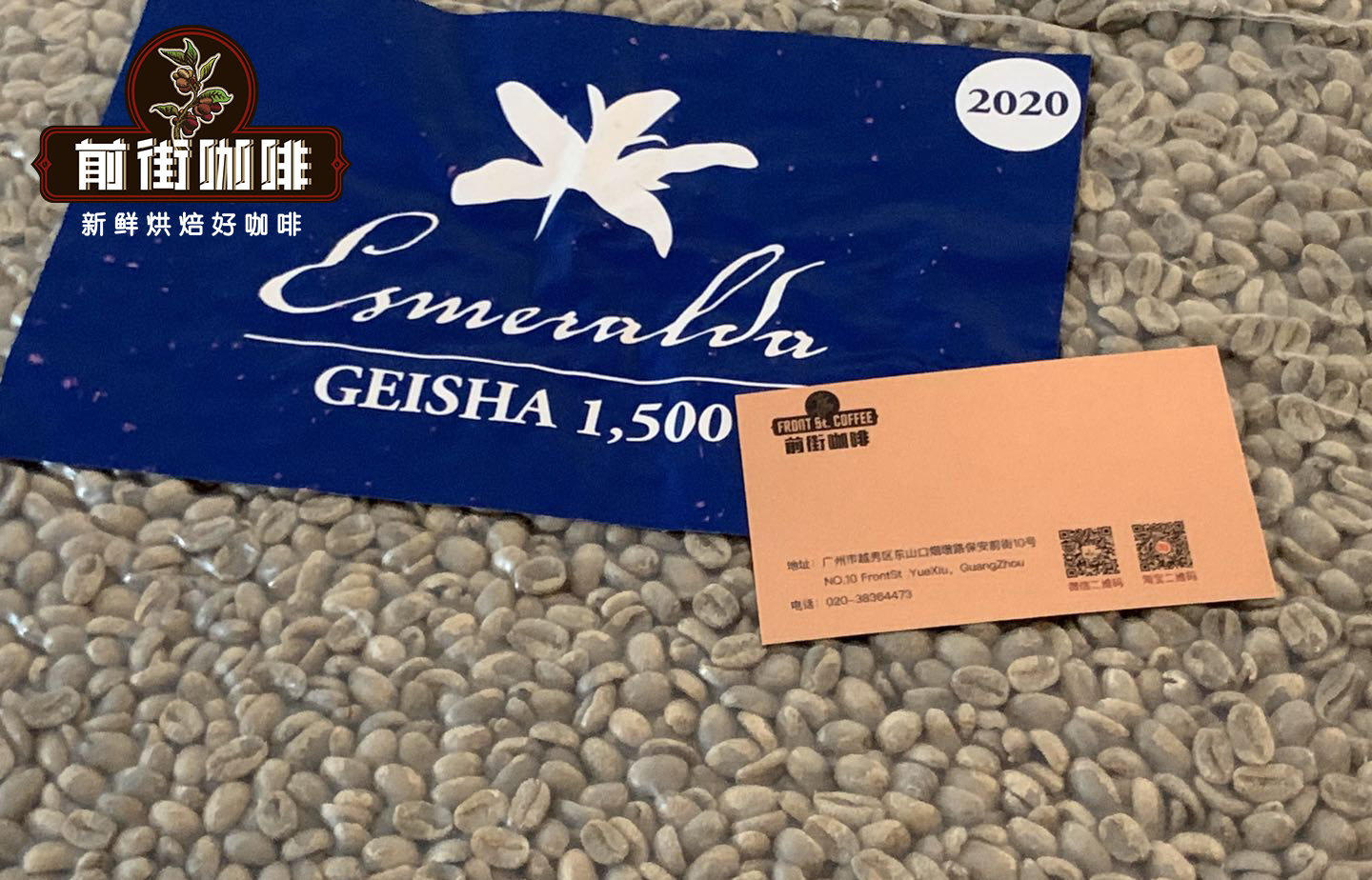
Suggestion on brewing coffee in Qianjie
The recommended brewing parameters of Qianjie coffee are as follows: 90 ℃ water temperature, 1:15 ratio of water to powder, 15g coffee powder weight, grinding scale BG#6S (Chinese standard No. 20 sieve pass rate 80%)
Qianjie takes into account that these rose summer coffee beans are lightly roasted, and the solubility of light roasted beans is lower than that of deep roasted beans, so in order to ensure that the flavor of rose summer can be fully extracted, higher water temperature is used for brewing. At the same time, a finer degree of grinding is also selected. Some fans have noticed that Qianjie has always recommended that the powder-to-water ratio is 1:15, while the Jade Manor's rose summer is 1:16, that's because a little bit larger powder-water ratio helps to better experience the layers and flavor of the rose summer.
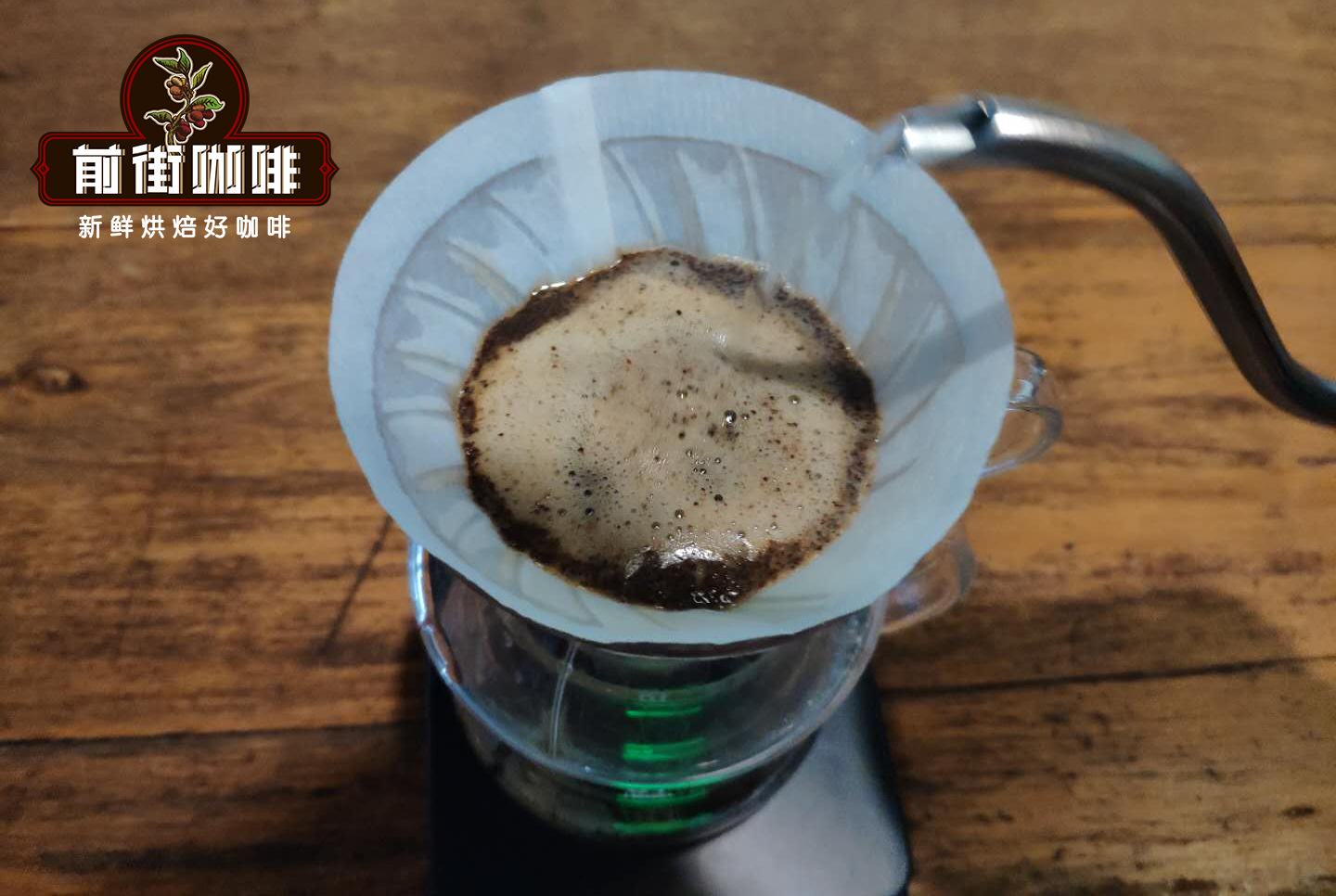
Qianjie coffee uses staged extraction, also known as three-stage brewing, steaming with 30 grams of water for 30 seconds, small water injection around the circle to 125 grams for stages, water level drop to 225 grams when the powder bed is about to be exposed, remove the filter cup when the water level drop is about to expose the powder bed, (steaming starts timing) the extraction time is 2 grams 3900 "- 2 grams 3905".
[red standard] there are bright roses, citrus aromas, black rice, berries, apricots, compound fruits, honey, thick juice, rich flavor, sweet and obvious.
[green standard] the jasmine is full-bodied and sweet, with citrus, berry, juice, cream, green tea, orange peel and cantaloupe as a whole.
[blue label] Flower aroma, with soft sour notes of lemon and grapefruit in the mouth, sweet honey in the middle, sweet oolong tea and brown sugar at the end, clean and bright taste.
Donkey Manor
The Donkey Manor sits on this piece of paradise, located in the foothills south of the Baru volcano in Panama, above the town of Portrerillos, 1700-1800 meters above sea level. Overlooking from Donkey Manor, you can see the Atlantic Ocean. The area of the manor itself is very small, only 5 hectares, which can be said to be a micro manor.
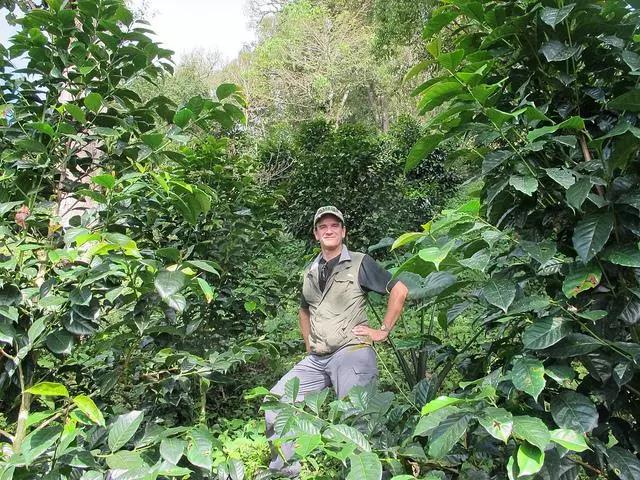
Do not look at such a small manor, the soil and planting environment are very high quality. The hillside was originally covered with primeval forests, and tall trees provided the best environment for shade-grown coffee. in some places, even because the trees were too luxuriant and the sun could not penetrate, affecting the growth of coffee, we had to clear the overdense bushes in the past two years to let the roses grow fully. Because of the nearby Balu volcano, the volcano created after the eruption in 1550 will create high-quality volcanic soil. Qianjie believes that in addition to potassium and phosphorus, the content of organic matter in volcanic soil is also very high, and the flavor of Rosa coffee will be very rich and layered.
Donkey Farm was founded by Mr Wilford Lamastus's grandfather Amado Boutet, the current heir of the Lamastus family, who had to sell large tracts of the estate when prices were low in the global coffee market. Mr. Wilford and his brother Patrick Lamastus couldn't bear the sale of the family's coffee farm, so they bought the donkey farm and went on with it. Although the business process is difficult and even requires doing other jobs to earn extra income, Mr. Wilford has not given up the coffee farm. Perseverance will be rewarded, and the coffee beans of Donkey Farm have also achieved good results in the BOP competition since 2015.
Coffee bean variety
The bean from Qianjie uses the rose summer variety. In 1931, when a team of botanists visited southwestern Ethiopia, Rosa pea was found in a primeval forest and then brought to Kenya to grow in a nursery. It then spread to Kenya and Tanzania.
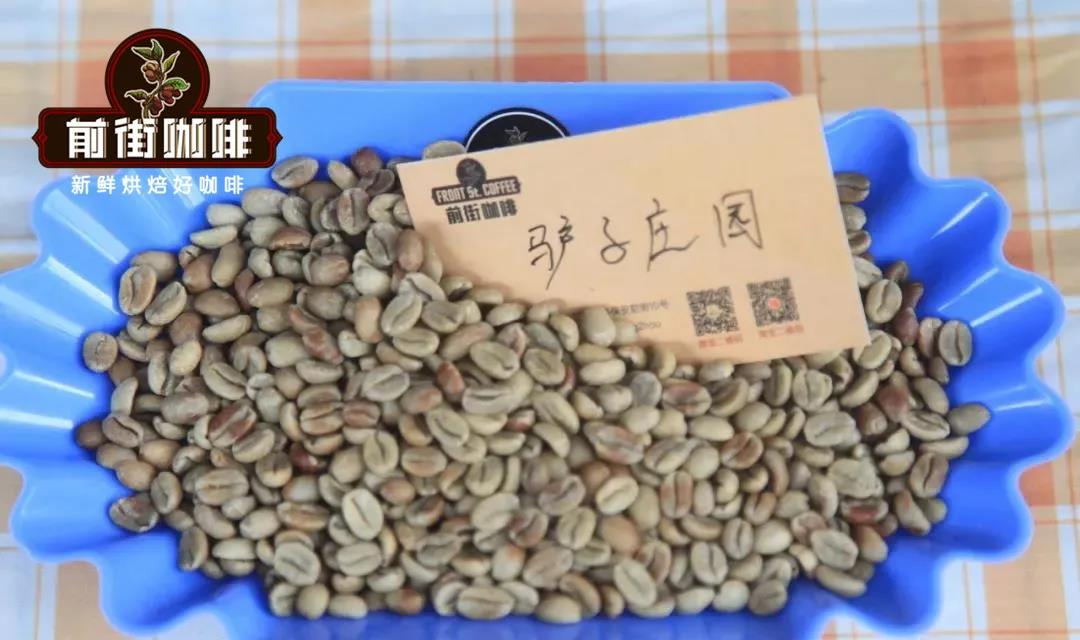
In 1953, CATIE, a research institute in Costa Rica, obtained some rose summer seeds from Tanzania for research. Pachi Serracin, the old owner of Don Patch Manor in Panama in 1960, brought Rose Summer to Panama from Costa Rica, but he was unknown in a small corner of the Panamanian coffee producing area because of the low production of Rosa coffee beans. Until 2004, the owner of the Emerald Manor found that there was a faint scent of flowers hidden in the coffee beans, which was very charming, and became famous overnight after taking part in the BOP contest alone. From then on, Rosa coffee beans shone at the front end of the boutique coffee industry.
Coffee bean treatment
The manor is screened after picking the fruit and dried in a sunny bed. The coffee fruit is dried by the sun, the color of the fruit changes from red to dark brown, and the total drying time is 18-30 days. After drying, it will be stored, and all dried peels will not be removed until the coffee beans are shipped. The pulp and parchment layers will take out the coffee beans, and then pick out the unripe beans, overcooked beans and fermented beans in preparation for shipment.
Qianjie believes that the advantage of this kind of sun is that it can completely isolate the miscellaneous smell caused by contact with the soil, on the other hand, it can also improve the efficiency of coffee fruit drying and more completely present the original fruit flavor of coffee. This work improves the quality of the overall cup test and the consistency after baking.
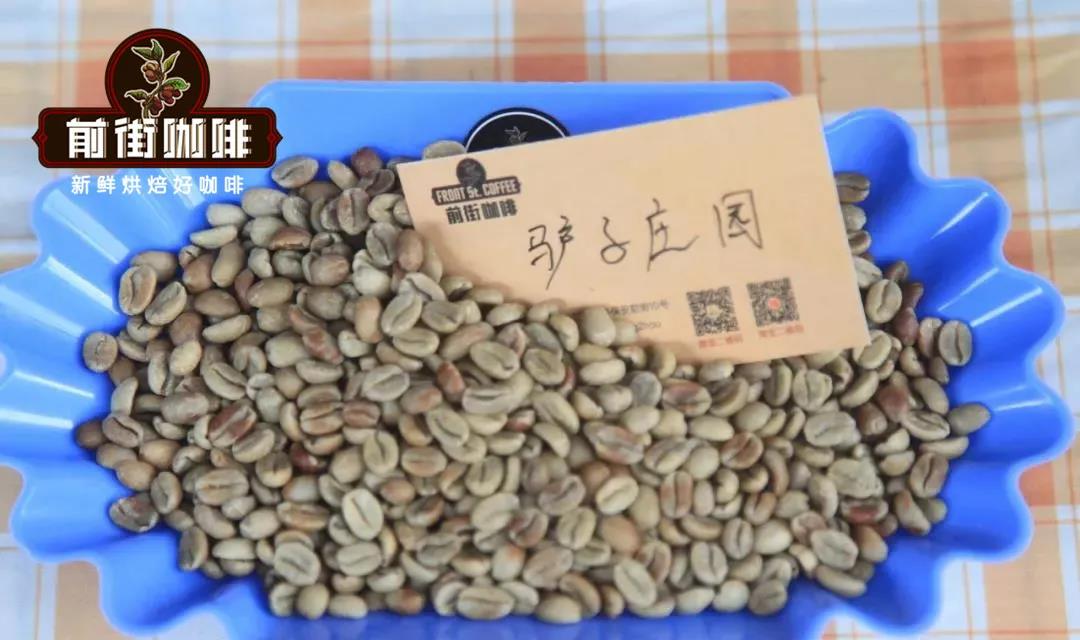
Qianjie Coffee Baking record
The front street baker uses Yang family 800N semi-direct fire, and the amount of beans is 300g. The furnace temperature reaches 160℃ into the pot, the throttle opens 3, the firepower is 130; the temperature recovery point is 1140℃, the firepower is adjusted to 110and the throttle is opened to 4; at this time the bean surface turns yellow, the smell of grass disappears completely, and enters the dehydration stage, when the furnace temperature reaches 166℃, the firepower is adjusted to 80, the throttle remains unchanged; at 176℃, it drops to 50, the throttle remains the same.
The smell of toasted bread has obviously changed to the smell of coffee, which can be defined as a prelude to an explosion. At this time, it is necessary to listen clearly to the sound of the explosion point, to the sound of the explosion point, turn the firepower down to 50, adjust the throttle to 5 (the firepower should be very careful and not be so small as to be free of bursting sound), and develop 1 hour after the explosion.
Coffee cup test report on Qianjie
Qianjie Coffee will be tested within 8-24 hours after the sample beans are roasted. The cup commonly used by baristas in front street is a ceramic bowl with a capacity of 200ml. The water temperature used in the cup test is 94 °. The pass rate of 20 # standard screen (0.85 mm) controlled by grinding degree is 70% Mel 75%. Ratio: 11.1 grams of coffee powder plus 200 milliliters of hot water, that is, 18.18, so that the concentration of extraction happens to be within the range of 1.15% Murray 1.35% gold cup, and the soaking time is 4 minutes.
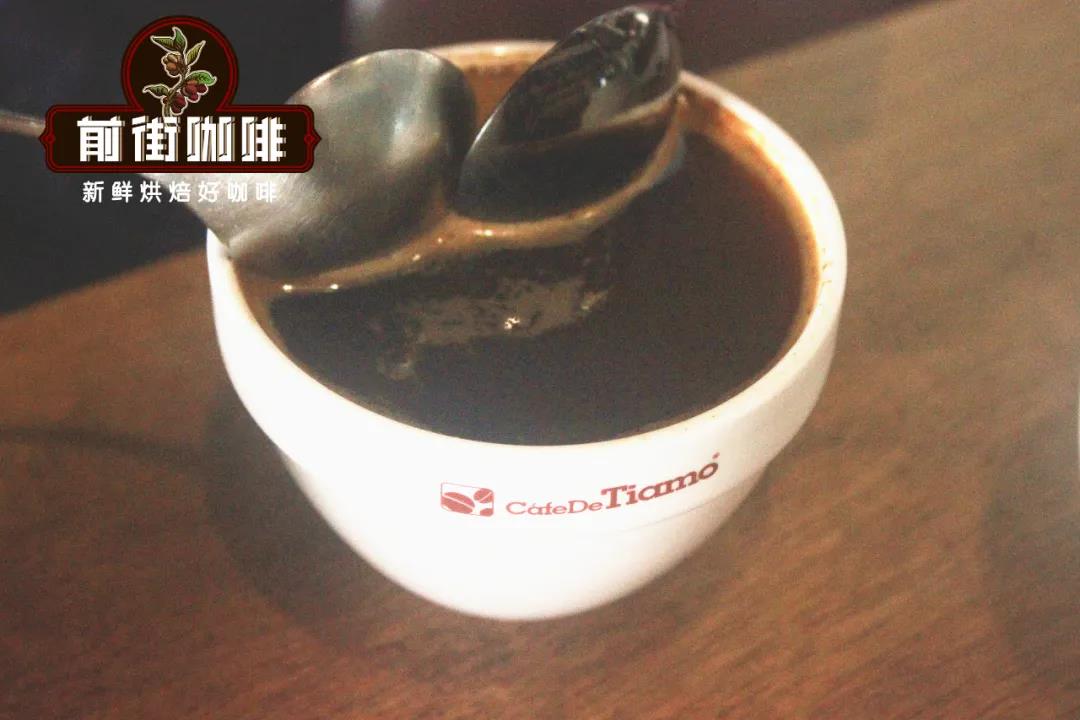
Dry aroma: fermented wine aroma
Shixiang: sweet orange
Flavor: fermented wine, sweet orange, honey, berries, pineapple, cream, fruit tea, green apple
Qianjie coffee brewing and sharing
Filter cup: V600001
Water temperature: 91 ℃
Powder / water ratio: 1:15
Degree of grinding: medium and fine grinding (Chinese standard No. 20 screen pass rate 80%)
Cooking technique: three-stage extraction. Steam with 30 grams of water for 30 seconds, small water flow around the circle to 125 grams for sectional injection, water level drop is about to expose the powder bed, continue to inject water to 225 grams to stop injection, and so the water level drop is about to expose the powder bed to remove the filter cup, (steaming starts timing) the extraction time is 2 minutes 39 percent 02 ".
Cooking flavor: it smells of ginger flowers, citrus, honey, berries and fermented wine in the mouth. With the decrease of temperature, pineapple-like sweetness emerges slowly, with sweet and sour orange at the end.
Front Street Coffee Jensen Manor in Panama Rose Summer
Producing area: Walken producing area
Manor: Johnson Manor
Altitude: 1750m
Variety: Rose summer
Grade: SHG
Treatment: solarization
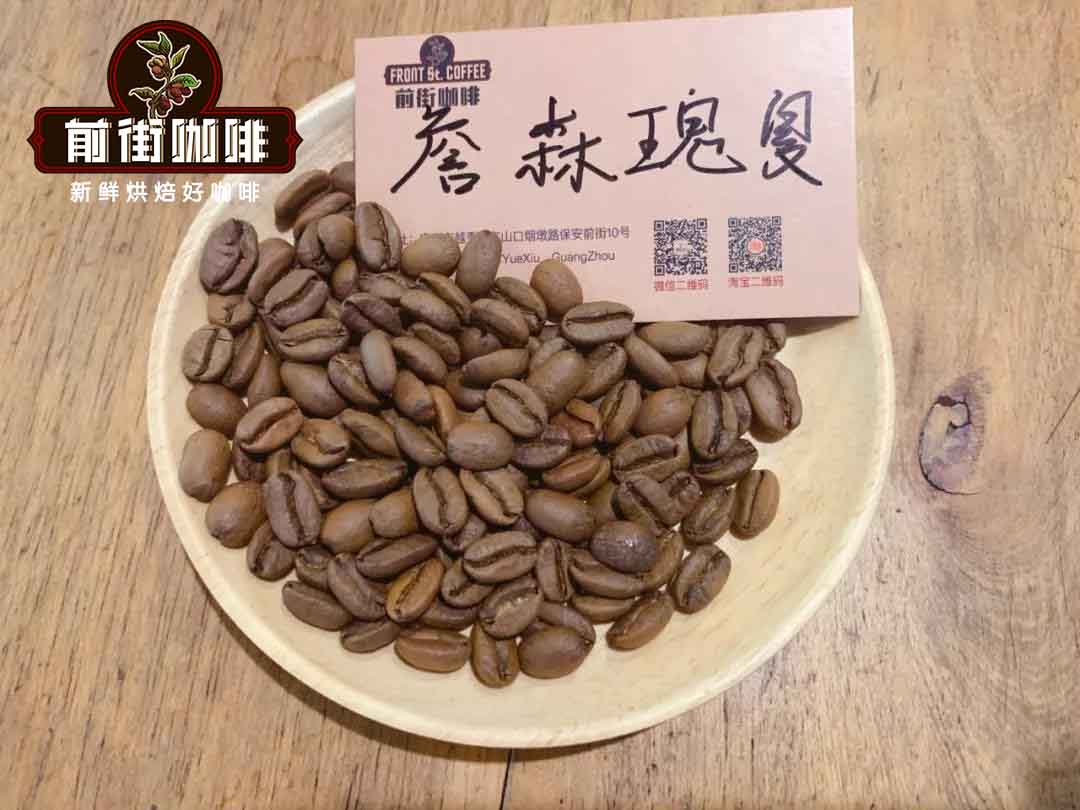
Jensen Manor
There is a new finalist for the 2013 Panama Coffee Awards awarded by the Panamanian Fine Coffee Association-Carl Jensen's Jensen Manor Janson Rose Summer.
Mr. Carl Janson, the owner of the estate, is Swiss. When he came to Panama, he fell in love with Volcan, a place surrounded by mountains similar to his native Switzerland. He married his wife Margaret and bought the estate in 1940. The Jensen family has now developed into the third generation.
Jensen Manor, with an average elevation of 1700 meters, annual rainfall of about 3000mm and an average annual temperature of 20 ℃, is covered with nutrient-rich volcanic soil. At this high altitude, nutrient-rich volcanic soil, abundant rainfall and suitable temperature, Jensen Manor has gradually become the second largest summer-producing manor in Panama, and 50% of the estate is planted with rosy summer coffee trees.
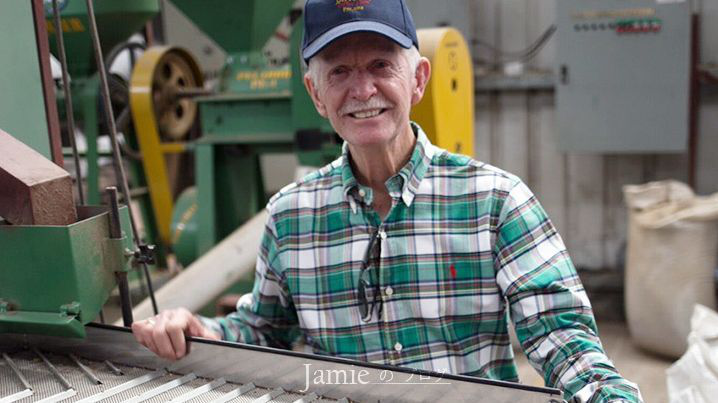
The operators of Jensen Manor pay great attention to maintaining the balance of the natural environment, adopting a 100% sustainable planting method and using enzyme microbes to maintain nutrient balance in the soil. It also operates animal husbandry and coffee cultivation, and specially builds a processing plant to treat coffee cherries and use them as farm fertilizer. Only 2000 rose summer plants are planted per hectare to ensure that there is enough soil between the plants. Half of the estate is planted in rose summer, ranking second in Panamanian rose summer production, and each batch of raw beans has a highly identifiable batch number that is 100% traceable.
Treatment method
This bean is treated in the sun.
Sun treatment is the oldest and most primitive treatment of coffee beans, in which the harvested coffee cherries are placed on the terrace, and some are even directly exposed to the sun by the side of the road (about 27-30 days). The moisture content from 60% to only 12% is completed, the beans treated by the sun have the lowest acidity, obvious sweetness, high alcohol thickness but slightly lower cleanliness.
In addition to sun treatment, Jensen Manor also has other treatment methods, such as the use of mountain spring water as a washing method.
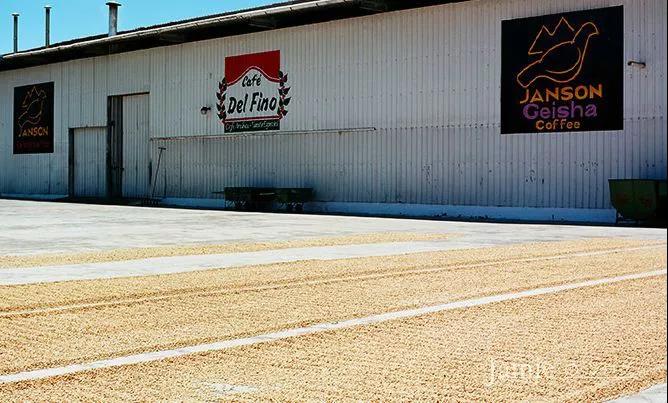
Take [Qianjie coffee brewing suggestion] as an example.
Filter cup: Hario V60
Water temperature: 90 ℃
Amount of powder: 15g
Powder / water ratio: 1:15
Degree of grinding: medium and fine grinding (BG#6S: 58% pass rate of Chinese standard No. 20 screen)
Washing and cooking technique
Segmented extraction
Steam with 30 grams of water for 30 seconds, small water flow around the circle to 125 grams for sectional injection, water level drop is about to expose the powder bed, continue to inject water to 225 grams to stop injection, and so on when the water level drop is about to expose the powder bed, remove the filter cup, (steaming starts timing) the extraction time is 2 minutes 39 percent 00 ".
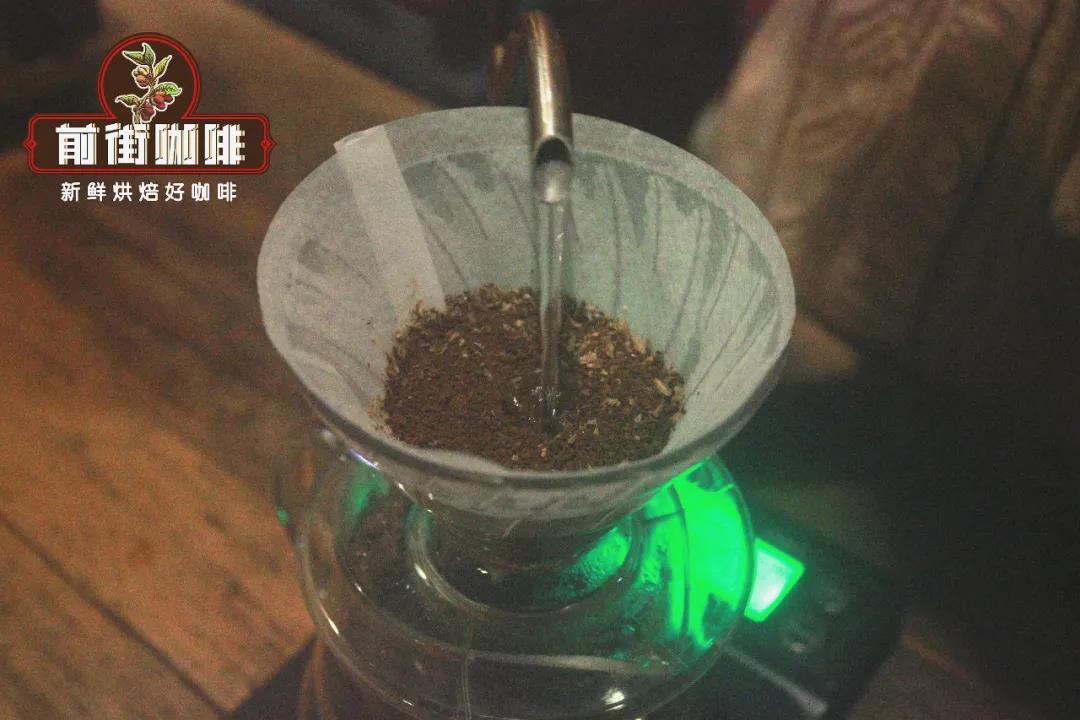
Flavor description
Dry fragrance: Jasmine, berry, citrus, banana, peach, mango
Wet fragrance: wild ginger, cantaloupe, lemon, grape, juicy, blackcurrant
Entrance: the perfect flavor of classic Rose Summer Coffee, delicate and soft acidity, light taste, floral aroma and honey interweave an unforgettable finish.
For more boutique coffee beans, please add private Qianjie coffee on Wechat. WeChat account: kaixinguoguo0925
Important Notice :
前街咖啡 FrontStreet Coffee has moved to new addredd:
FrontStreet Coffee Address: 315,Donghua East Road,GuangZhou
Tel:020 38364473
- Prev
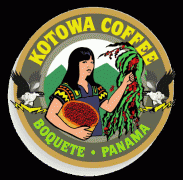
Introduction of Panama Finca Kotowa planting and treatment Manor in Cotova Manor, Panama
For the exchange of professional baristas, please follow the coffee workshop (Wechat official account cafe_style) Kotowa means mountain in the native language of Panama. The founder of the manor: Alexander. Duncan. McIntyre, a Canadian. One day in 1918, he read a report about Pocket in Panama in Central America. The report details that there is an one beside the mysterious volcanic slope here.
- Next
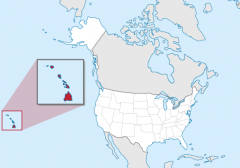
Introduction to the planting Environment of Hawaii kona Hawaiian Kona Coffee producing area
Professional barista exchanges please follow the coffee workshop (Wechat official account cafe_style) Hawaii kona (Hawaii Kona) the main producing area is Hawaii, the largest island in the Hawaiian archipelago, known as the the big island, mostly grown in the west and south of the Kona region, distributed on the slope of the Mauna Loa volcano, about 150750m above sea level
Related
- Does Rose Summer choose Blue, Green or Red? Detailed explanation of Rose Summer Coffee plots and Classification in Panamanian Jade Manor
- What is the difference between the origin, producing area, processing plant, cooperative and manor of coffee beans?
- How fine does the espresso powder fit? how to grind the espresso?
- Sca coffee roasting degree color card coffee roasting degree 8 roasting color values what do you mean?
- The practice of lattes: how to make lattes at home
- Introduction to Indonesian Fine Coffee beans-- Java Coffee producing area of Indonesian Arabica Coffee
- How much will the flavor of light and medium roasted rose summer be expressed? What baking level is rose summer suitable for?
- Introduction to the characteristics of washing, sun-drying or wet-planing coffee commonly used in Mantenin, Indonesia
- Price characteristics of Arabica Coffee Bean Starbucks introduction to Manning Coffee Bean Taste producing area Variety Manor
- What is the authentic Yega flavor? What are the flavor characteristics of the really excellent Yejasuffi coffee beans?

